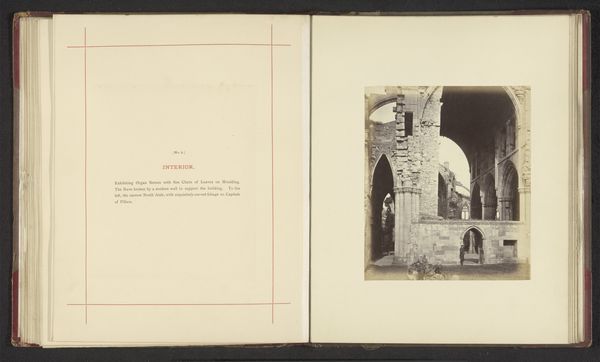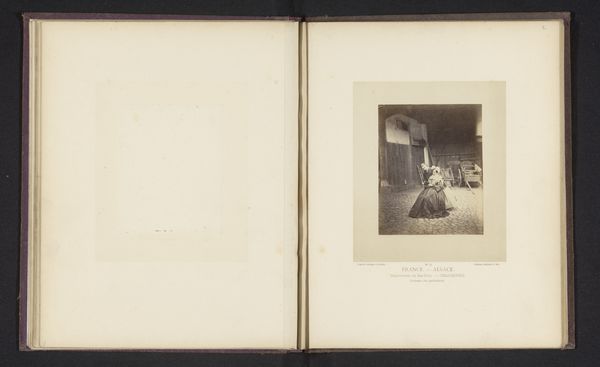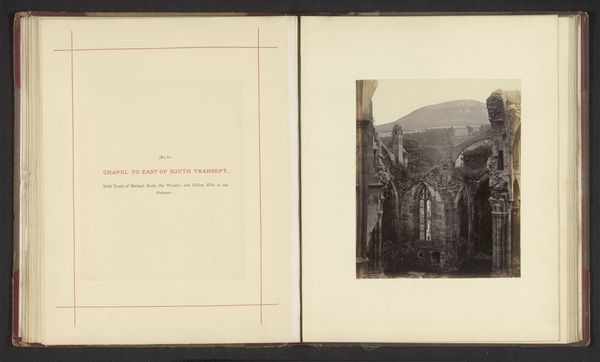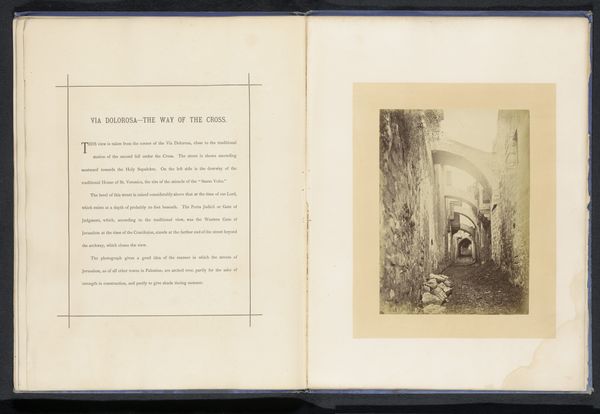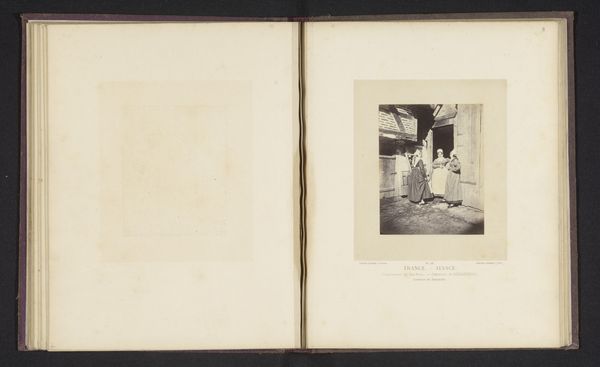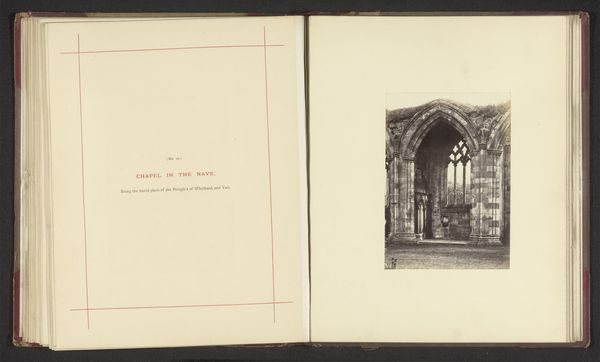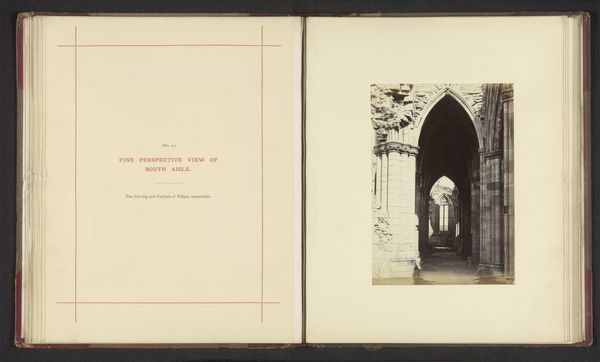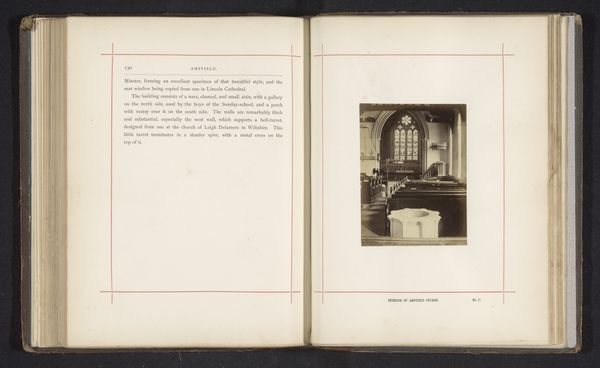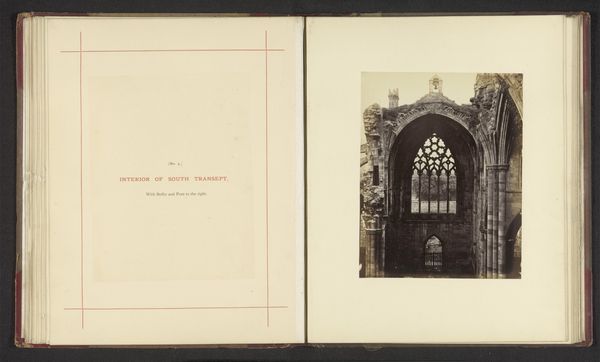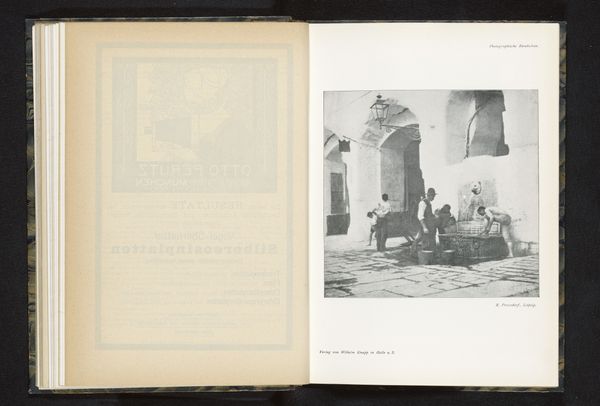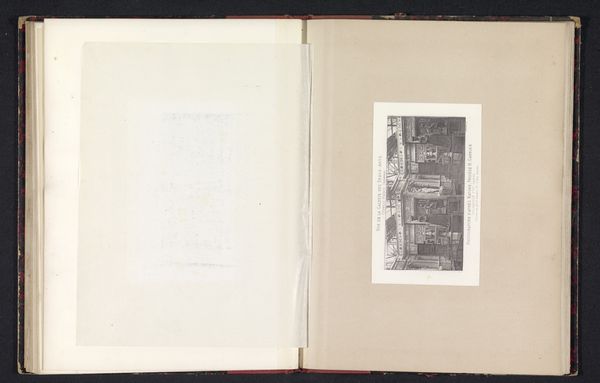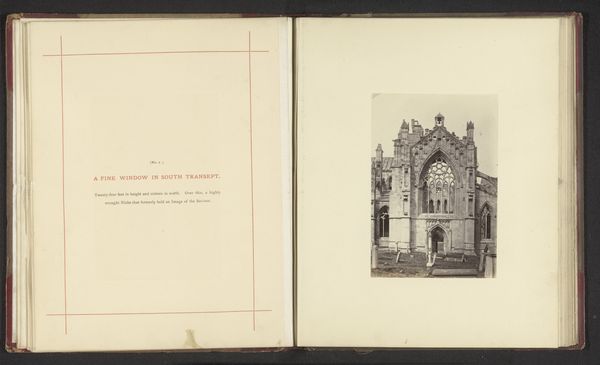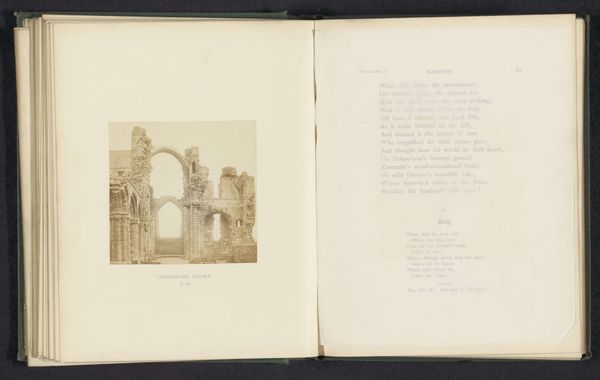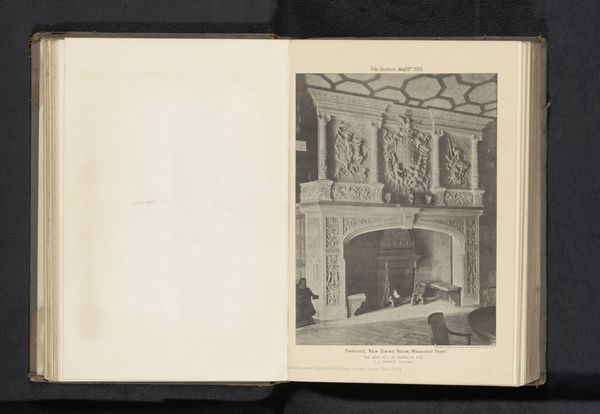
print, photography, gelatin-silver-print, architecture
#
medieval
# print
#
landscape
#
photography
#
romanesque
#
gelatin-silver-print
#
cityscape
#
architecture
Dimensions: height 165 mm, width 131 mm
Copyright: Rijks Museum: Open Domain
This is a photograph of the interior of the northern transept of Melrose Abbey, by W.J. Pringle. The primary material here is light, captured through the photographic process, and recorded on a treated paper. The visual qualities of the image, its tonality, texture and composition, depend not only on the photographer’s eye, but also on skilled darkroom work. Think of the image as the result of a collaborative act between the photographer, the chemistry, and the paper. Consider how labor and class intersect here: The photographer might be seen as an artist, while the paper manufacturing was a distinctly industrial process. Likewise, the architecture of Melrose Abbey itself was the product of a complex division of labor, and the collective effort of many hands in quarrying, carving, and construction. Looking at this photograph, it is important to remember the layers of processes, from stone to photograph. This challenges conventional categories of fine art versus craft, revealing how all creative work is deeply embedded in social and material conditions.
Comments
No comments
Be the first to comment and join the conversation on the ultimate creative platform.
